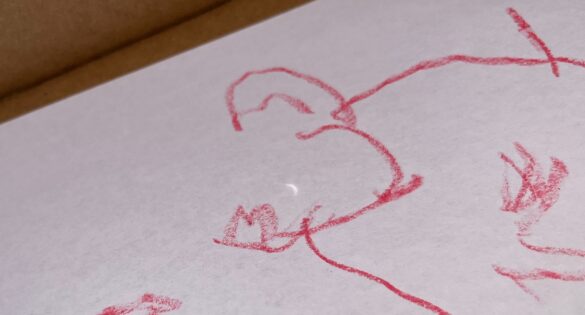These days we’re used to life being disrupted by crises large and small, from a global health crisis to a dilapidated subway system and everything in between. So it was a nice change, on Monday, to have life disrupted by an extraordinary but harmless event.
I don’t know about you, but all around me I saw people shaken out of their routines. Yuppie couples used to working from home in separate rooms spent a few hours sitting side by side in the park outside our apartment, gazing at the sky as the sun slowly dimmed. Crowds of office workers stood along the boardwalk outside the Schrafft’s building, chatting and sharing glasses. At home, we built a pinhole projector box and wandered around the neighborhood, keeping track of the shape of a tiny crescent sun.
I’ve even heard reports—I’ll keep them anonymous for now—that strangers talked to one another (talked to one another! in Boston!) and lined up along the streets, sharing protective glasses as they stared up at the sun.
And that was just the partial eclipse.
Over the last few years, we’ve gotten used to life being disrupted and new kinds of community being formed by cataclysmic crises and dire events. I think of the surreal stillness of the world outside in the spring of 2020, so different from the stillness I heard in the air yesterday. I think of the periodic outpourings of solidarity we feel with the people subjected to the latest rounds of violence, terror, and war throughout the world. I think of the aftermath of elections and sports championships, expressions of collective effervescence balanced by expressions of rage and despair.
But when the sun is briefly blotted out, there are no losers. No one is hurt. There is no crisis bringing us together—only awe, and joy, and wonder.
“The solar eclipse was life-changing,” one headline declared on Tuesday morning. But I wonder whether life will really change.
Will the woman who yelled out her car window to offer us her glasses as she turned left across a crowded intersection stay so generous toward her neighbors forever? Or will her next round of shouting at pedestrians be a bit less kind?
Will the couples and coworkers who spent an hour outside together make it a regular thing? Or will they go back to spending their lunch hour side-by-side but staring at their phones?
How long will our hushed awe at the magnificence of the universe remain, and how quickly will the static of daily life rise up to drown it out?
Easter is an eclipse moment for our faith: A moment of crisis and wonder, an earth-shaking event that should, in theory, change everything about the way we live.
But will it?
How long will the joy of Easter remain before we return to more quotidian concerns? How long will the hope of Easter lift our spirits before we’re dragged back down to earth? Is the story of the Resurrection truly life-changing—or do our old patterns soon enough re-emerge?
Maybe it’s both. And that’s okay. But we live now in the world after Easter, just as we live in the world after the eclipse. A wonderful thing has happened, and now it’s gone, and we’re left with the memory, wondering: What difference will it make?
So my prayer, today, is this: May our minds be filled with wonder at the glory of nature, on ordinary and extraordinary days. May our hearts be filled with generosity and love of our neighbors, whether we see them on a Monday filled with awe, or simply on a Monday. And may the joy of Easter Sunday and the wonder of Eclipse Monday become touchstones that can draw us back toward hope and joy, on every other plain old boring day.

